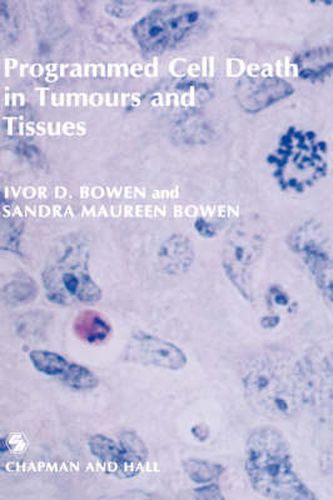Readings Newsletter
Become a Readings Member to make your shopping experience even easier.
Sign in or sign up for free!
You’re not far away from qualifying for FREE standard shipping within Australia
You’ve qualified for FREE standard shipping within Australia
The cart is loading…






This title is printed to order. This book may have been self-published. If so, we cannot guarantee the quality of the content. In the main most books will have gone through the editing process however some may not. We therefore suggest that you be aware of this before ordering this book. If in doubt check either the author or publisher’s details as we are unable to accept any returns unless they are faulty. Please contact us if you have any questions.
Recently there have been many advances in the understanding of the genetic basis of development and regular breakthroughs are being made in the field of tumour cell targeting. Both these areas of research are coming together in terms of their perception of programmed cell death. A broad introduction of the biological significance of cell death is followed by a major review of the significance of physiological cell death in tumours and the factors that influence it. The volume includes a consideration of the role and functions of lymphokines and their bearing on tumour cell targeting and cell killing. The interleukins, interferons and tumour necrotic factor (TNF) are presented in terms of their functional significance rather than in a sequential or systematic manner. This volume concentrates on the bases of biological or programmed cell death. Aspects of necrosis are, however, of necessity covered in comparative and technical terms. The central section on cell death in tumours is followed by a resume of the techniques employed in demonstrating cell death and this section closes with an appendix giving practical details of selected methods. It is hoped that the book may help potential research workers focus not only on the underlying molecular biology of programmed cell death but also provide impetus for the development of appropriate therapeutic regimes in tumour research.
$9.00 standard shipping within Australia
FREE standard shipping within Australia for orders over $100.00
Express & International shipping calculated at checkout
This title is printed to order. This book may have been self-published. If so, we cannot guarantee the quality of the content. In the main most books will have gone through the editing process however some may not. We therefore suggest that you be aware of this before ordering this book. If in doubt check either the author or publisher’s details as we are unable to accept any returns unless they are faulty. Please contact us if you have any questions.
Recently there have been many advances in the understanding of the genetic basis of development and regular breakthroughs are being made in the field of tumour cell targeting. Both these areas of research are coming together in terms of their perception of programmed cell death. A broad introduction of the biological significance of cell death is followed by a major review of the significance of physiological cell death in tumours and the factors that influence it. The volume includes a consideration of the role and functions of lymphokines and their bearing on tumour cell targeting and cell killing. The interleukins, interferons and tumour necrotic factor (TNF) are presented in terms of their functional significance rather than in a sequential or systematic manner. This volume concentrates on the bases of biological or programmed cell death. Aspects of necrosis are, however, of necessity covered in comparative and technical terms. The central section on cell death in tumours is followed by a resume of the techniques employed in demonstrating cell death and this section closes with an appendix giving practical details of selected methods. It is hoped that the book may help potential research workers focus not only on the underlying molecular biology of programmed cell death but also provide impetus for the development of appropriate therapeutic regimes in tumour research.